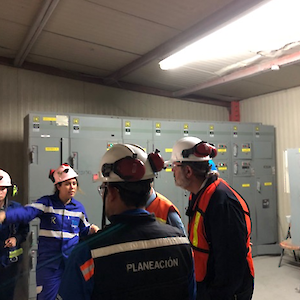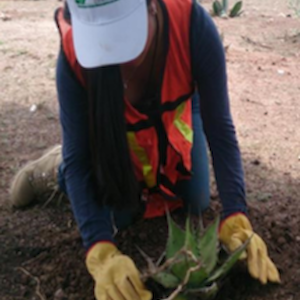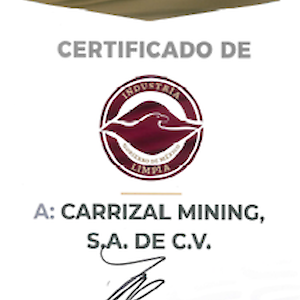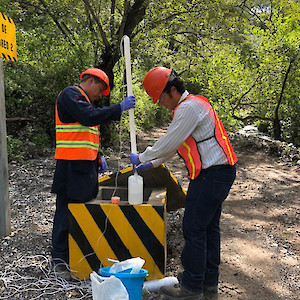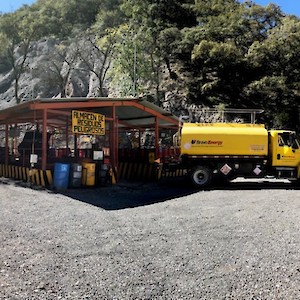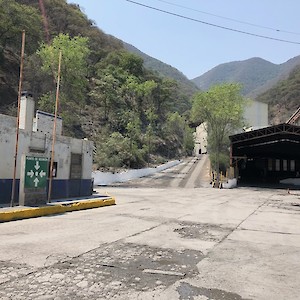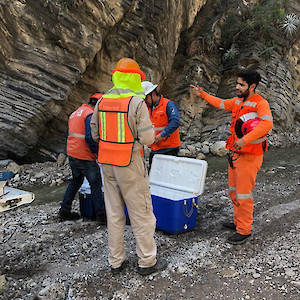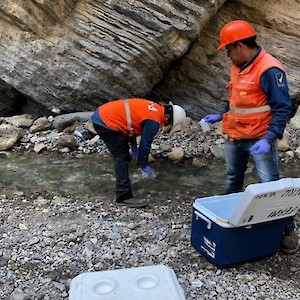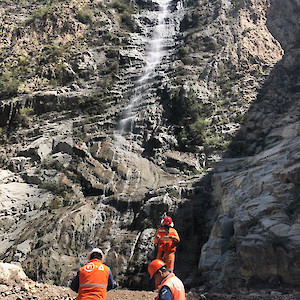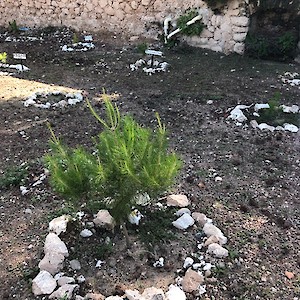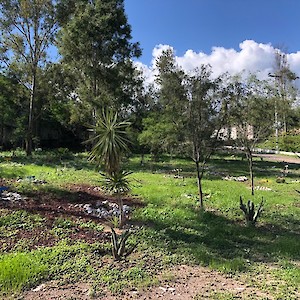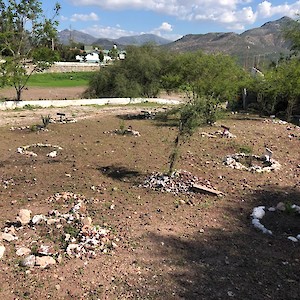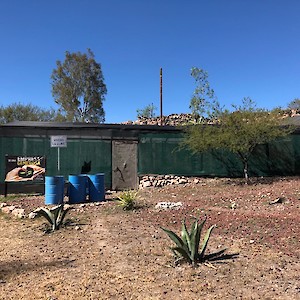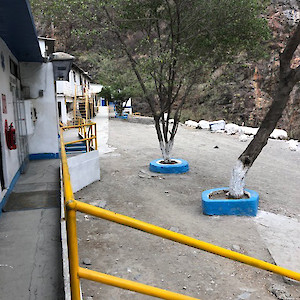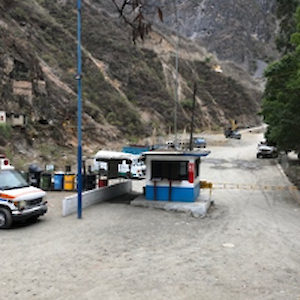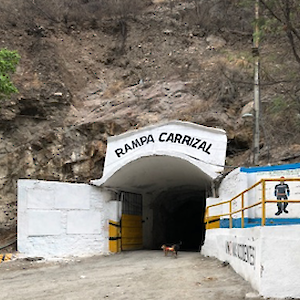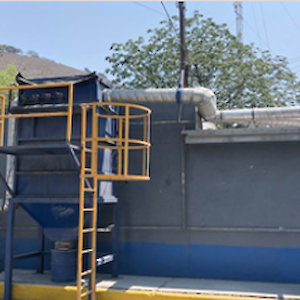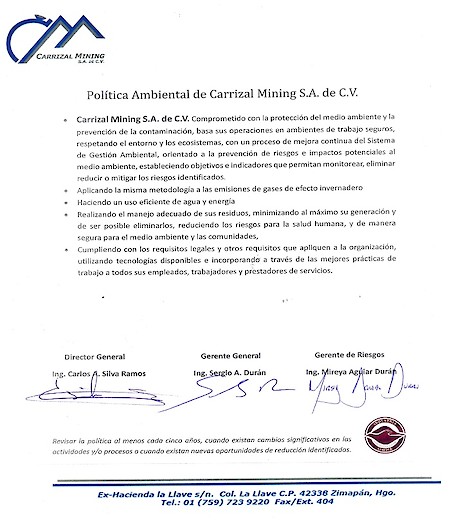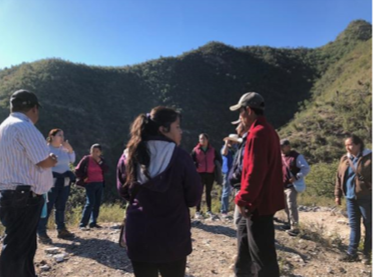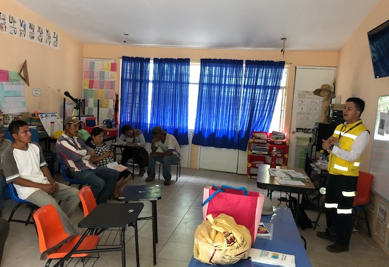Initiatives
Clean Industry Certificate
Carrizal Mining received the Clean Industry Certificate at the Federal Attorney for Environmental Protection (PROFEPA) offices, implemented by the National Program for Environmental Protection.
Oriented to companies in operation, which due to their location, dimensions, characteristics, and scope might cause negative effects or impacts to the environment.
The certificate was delivered to Engineer Sergio Durán, general manager of the mine, by the PROFEPA delegate in Hidalgo. Sergio Islas López and the Subdelegate of Audit Humberto Ángeles Mozalvo.
The benefits granted by the “Clean Industry” certification go beyond compliance wih regulations, since they incorpórate preventive and/or corrective measures in the area of water, air, soil, subsoil, hazardous waste, etc.
Iniciative for Responsible Mining Assurance (IRMA)
 The Standard for Responsible Mining specifies a set of objectives and performance requirements for an environmentally and socially responsible practice. The Standards serves as a basis of a voluntary system that offers independent third party evaluation and certification of environmental and social performance measures at mining sites on an industrial scales worldwide.
The Standard for Responsible Mining specifies a set of objectives and performance requirements for an environmentally and socially responsible practice. The Standards serves as a basis of a voluntary system that offers independent third party evaluation and certification of environmental and social performance measures at mining sites on an industrial scales worldwide.
The IRMA Standard for Responsible Mining is based on four principles:
- Company Integrity
- Planning and management of positive legacies
- Social Responsibility
- Environmental responsibility
Principle 1. Company Integrity
Environmental Policy
- Committed to environmental protection and pollution prevention, Carrizal bases its operation i safe working environments, respecting the environments and ecosystems with a process o continuous improvement of the Enviromental Management System, aimed at the prevention of potental risks and impact to the environment, establishing and indicators that allow monitoring, eliminating, reducing or mitigating identified risks.
- Applying the same methodology to greenhouse gas emissions, making efficient use of water and energy
- Making proper management of their waste, minimizing its generation and if possible eliminating them, reducing risks to human health, and safly for th environment and communities.
- Complying with legal requirements and other requirements that apply to the organization, using available technologies and incorporating all employees, workers and service providers through the best work practices.
The environmental policy is updated considering the IRMA requirements:
- Implementation of an Environmental Management System
- Greenhouse gas reduction
- Efficient use of water and energy
- Waste management compliance with legal requirements and other requirements
Principle 2. Planning and Mangement of Positive Legacies
 It must be ensured that mining projects are planned and managed to generate positive environmental legacies for businesses, workers and communities.
It must be ensured that mining projects are planned and managed to generate positive environmental legacies for businesses, workers and communities.
The company currently has a Clean Industry certification, which consists of a program that allows the integration of an environmental mangement system that allows regulatory compliance, which is evaluated in a comprehensive, systematic, objective and documented manner, regarding the way in which a company, is staff and its team operate with the objective of protecting the environment.
The certification in environmental matters allows to improve the productive processes of the industries and their competitiveness at natinal and International level; in addition to facilitating environmental improvement and avoiding penalties for non-compliance with environmental regulations, as it prioritizes prevention over the sanction
Principle 3. Social Responsibility
The operating companies relate to workers, stakeholders and rights holders to maintain or improve health, safety and cultural values, and life quality of workers and communities.
Talks are given to the communities to let them know:
- Water management
- Waste managent: hazardous waste (incluiding tailings, special handling
- Involve communities in the sampling and environmental controls established in the processes
- Community needs in environmental matters
Principle 4. Environmental Responsibility
Operating companies engage with stakeholders to ensure that mining is planned and carried out in a way that maintains or improves environmental values, and avoids or minimizes impact on the environment and communities.
- Reforestation
- Species relocation
- Environmental monitoring
- Water studies
- Atmospheric emissions
- Waste management
- Classification and final disposal of waste

